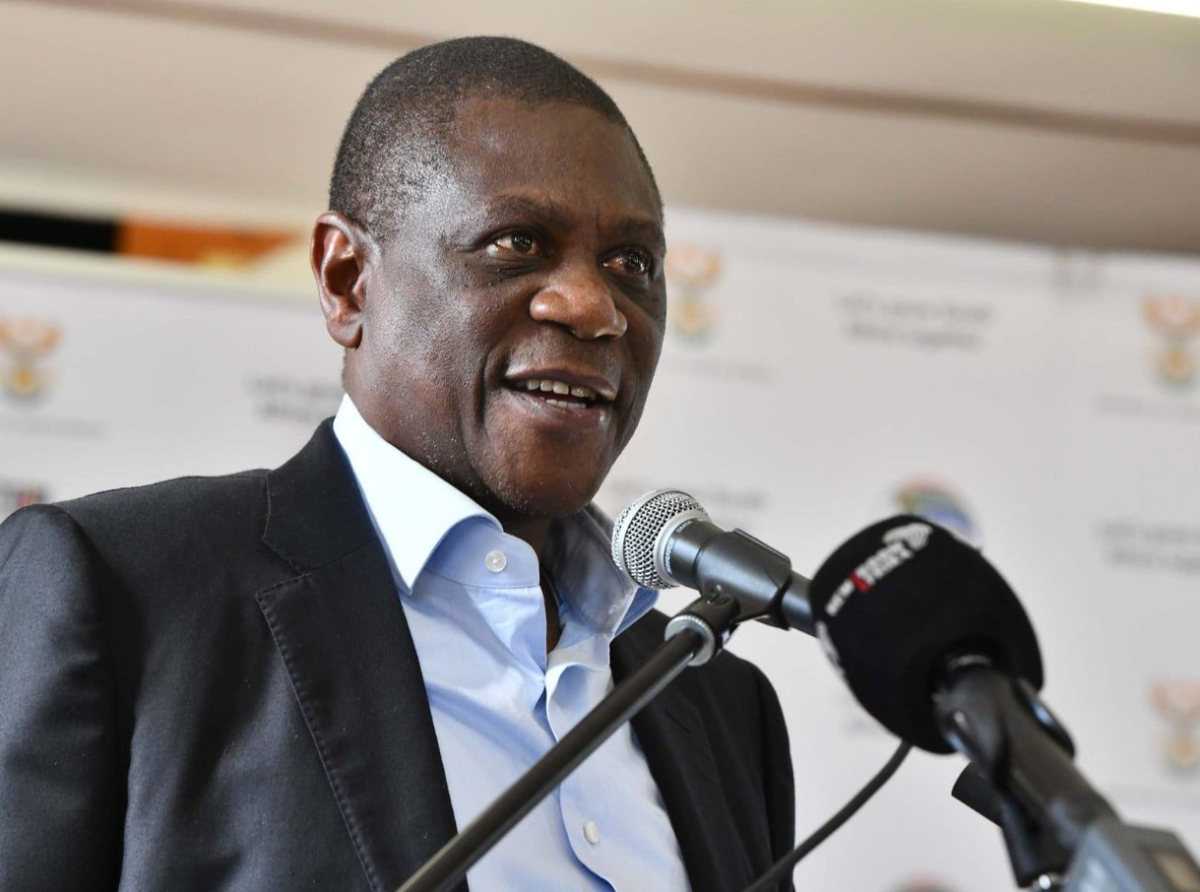"Inside the Lotto Tender": Did Mashatile’s Ties Tip the Scales?

By: Selloane Khalane
Deputy President Paul Mashatile has denied accusations that he influenced the awarding of an estimated multi-billion rand National Lottery license to Sizekhaya Holdings, amid intensifying scrutiny over the company’s ties to his immediate family. The denial follows a searing investigation by amaBhungane, published on 23 June, which connected one of Sizekhaya’s shareholders, Bellamont Gaming, to Mashatile’s sister-in-law, Khumo Bogatsu. The company is co-owned and co-directed by Bogatsu and Moses Tembe, a KwaZulu-Natal businessman and the current chair of Sizekhaya. Both individuals have links— personal and professional—to the Deputy President. Bogatsu is the twin sister of Humile Bogatsu, now known as Humile Mashatile, whom the Deputy President married in 2023. Though Mashatile insists that he played no role in the awarding of the contract, critics and analysts are questioning whether proximity alone constitutes undue influence. A Tender With Powerful Ties Sizekhaya was officially awarded the National Lottery license on 28 May, following extensive delays in the adjudication process. The announcement came just three days before Ithuba Holdings’ existing license expired on 31 May. The new license grants Sizekhaya the power to operate the lottery for the next eight years, beginning in June 2026, and is expected to generate billions in revenue. This significant contract was overseen by the National Lotteries Commission (NLC), which falls under the portfolio of Trade, Industry and Competition Minister Parks Tau. The Department had received eight bids for the license, with the process described by Tau as “arduous.” In light of the amaBhungane exposé, Minister Tau responded before Parliament’s Portfolio Committee on Trade, Industry and Competition on 24 June. In that session, he acknowledged the seriousness of the claims and promised that his Department and the NLC would seek independent legal advice to assess whether a conflict of interest or political bias had compromised the fairness of the bidding process. “It would be irresponsible to ignore concerns raised by investigative journalists,” Tau said, pledging transparency and adherence to due process. Mashatile: “Where Must They Do Business?” In a televised interview with SowetanLIVE on the same day, Mashatile shrugged off the allegations, suggesting that the idea of “guilt by association” was both unfair and unrealistic. “There are so many people who know me in this country—family, children, cousins, and friends. Where must they do business, in Zimbabwe?” he said, adding: “They can do business as long as I’m not involved… Because once you say Mr. Mashatile is capable of influencing, even if he is sitting in his house, it’s unfair.” He dismissed the idea that connections alone should imply corruption, noting that the chairperson of the NLC had publicly stated no political pressure influenced the decision. “Why don’t we believe him?” he asked. Mashatile further defended his 30-year track record in government, saying, “There is no single department that I have run where the Auditor-General came and said there was a problem… If I’ve done something wrong, I’ll be the first to accept it—but if not, I won’t.” An Ethics Cloud That Lingers This is not the first time Mashatile has been forced to answer tough questions about his ethics and political connections. In 2023, he was questioned by Parliament’s Ethics Committee following allegations linking him to controversial businessman Edwin Sodi, a key figure in the R255-million Free State asbestos corruption case. The Democratic Alliance (DA) filed criminal charges against Mashatile last year, citing evidence that he was living a lavish lifestyle, allegedly subsidized by businesspeople under criminal investigation. The party accused him of benefiting from high-end properties, luxury vehicles, and extravagant hospitality with murky sources of funding. DA Chief Whip Siviwe Gwarube pressed Mashatile during a Q&A session to come clean about these allegations, asking why his name repeatedly appeared in stories detailing ethically questionable relationships between government leaders and business elites. In response, Mashatile claimed ignorance: “I don’t know where these allegations come from. People just go around picking stuff, and I don’t know what their motive is. They would know why.” The Shadow of Succession While the Deputy Presidency is not a guaranteed springboard to South Africa’s highest office, the role has historically positioned leaders at the heart of ANC succession battles. As President Cyril Ramaphosa’s second term winds down, competition for the party’s top post is slowly intensifying. Factions are forming, alliances are being tested, and scrutiny is falling heavily on those next in line for power. Mashatile, long considered a shrewd operator with deep roots in Gauteng’s political machinery, now finds himself at a crossroads. With questions of cronyism, proximity-based enrichment, and political influence dogging him, his ambitions—whether stated or not—may face serious obstacles. When Proximity Breeds Distrust The growing controversy surrounding Deputy President Paul Mashatile isn’t just a question of legality—it’s a question of public confidence. In a nation still reeling from successive waves of corruption scandals, even the appearance of impropriety can erode already fragile trust in democratic institutions. While Mashatile insists on his innocence, the echoes of influence reverberating from boardrooms to Parliament continue, not just for his political future, but for the integrity of the systems that govern us all. If the lottery is about chance, the people deserve to know the process wasn’t rigged before the draw began.

